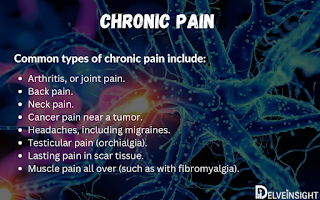The Future of Brain Health: Wireless Brain Sensors in Action
Wireless brain sensors are transforming the fields of neuroscience and healthcare, offering unprecedented opportunities for monitoring and treating neurological disorders. These innovative devices have the potential to enhance patient outcomes, drive scientific discovery, and revolutionize the way we approach brain health.
Wireless Brain Sensors Applications in Neuroscience
Wireless brain sensors are pivotal in advancing neuroscience research. They allow real-time monitoring of neural activity, providing insights into brain functions and disorders such as Parkinson’s Disease, Alzheimer’s Disease, and Epilepsy. These sensors facilitate deep brain stimulation (DBS), a technique used to treat movement disorders and psychiatric conditions. The integration of artificial intelligence (AI) with wireless brain sensors enhances the precision of DBS, optimizing patient-specific treatments.
Impact of Wireless Brain Sensors on Healthcare
In healthcare, wireless brain sensors are improving diagnostic accuracy and treatment efficacy. They enable continuous monitoring of brain activity, helping in the early detection and management of neurological disorders. For instance, in epilepsy, these sensors can predict seizures, allowing timely interventions. In Parkinson’s Disease, they provide data to fine-tune DBS devices, improving motor control. Overall, these sensors enhance patient care by enabling personalized treatment plans and reducing the need for invasive procedures.
Wireless Brain Sensors Market Dynamics
The global wireless brain sensors market is experiencing significant growth, driven by the increasing prevalence of neurological disorders and advancements in sensor technology. The deep brain stimulation devices market is also expanding, fueled by the rising adoption of DBS for treating movement disorders. Additionally, growing investments in neuroscience research and the integration of AI in healthcare are boosting market growth.
Prominent Players in the Wireless Brain Sensors Market
Key wireless brain sensors companies in the market include - NeuroSky, Advanced Brain Monitoring Inc., Koninklijke Philips N.V., Natus Medical Incorporated, NeuroWave Systems Inc., EMOTIV, BrainScope, InteraXon Inc., Cadwell Industries Inc., Neuroelectrics, Neuronetrix Solutions, LLC, Muse, and others. These companies are at the forefront of innovation, developing advanced sensors and DBS devices. They are also involved in strategic collaborations and research initiatives to expand their product portfolios and enhance their market presence.
Wireless Brain Sensors: Challenges and Ethical Considerations
Despite their potential, wireless brain sensors face challenges such as data privacy, security, and the need for regulatory approval. Ethical considerations include informed consent, the potential for misuse of neural data, and the long-term effects of chronic brain monitoring. Addressing these challenges is crucial for the widespread adoption of wireless brain sensors.
The Future of Wireless Brain Sensors
The future of wireless brain sensors is promising, with ongoing advancements in AI, miniaturization, and battery technology. These developments will enhance the functionality, accuracy, and durability of brain sensors. Emerging markets, such as those in Asia-Pacific, are expected to drive market growth due to improving healthcare infrastructure and rising awareness of neurological disorders. In the coming years, wireless brain sensors will continue to revolutionize neuroscience and healthcare, offering new possibilities for understanding and treating brain diseases.
Conclusion:
In conclusion, wireless brain sensors are at the cutting edge of neurological research and treatment. By providing real-time, accurate data, they are transforming the landscape of brain health and paving the way for innovative therapies and improved patient care. The global wireless brain sensors market is poised for significant growth, driven by technological advancements and increasing demand for effective neurological treatments.
Latest Reports Offered By DelveInsight:
Aneurysmal Subarachnoid Hemorrhage Market | Angelman Syndrome Market | Autoimmune Pulmonary Alveolar Proteinosis Market | Cardiovascular Calcification Market | Charcot Marie Tooth Disease Market | Chronic Focal Epilepsy Market | Crispr Therapies- Pipeline Insights Market | Cytokine Release Syndrome Market | Frontotemporal Dementia Market | Glabellar Frown Lines Market | Graves Ophthalmopathy Market

.png)


Comments
Post a Comment